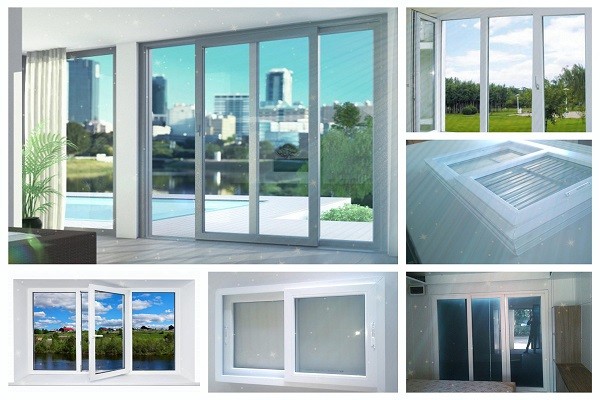In the quest for sustainable living, every aspect of home design plays a vital role in reducing environmental impact and enhancing energy efficiency. One of the most significant components of modern architecture is the choice of windows. Among the various materials available, Unplasticized Polyvinyl Chloride (UPVC) windows have emerged as a leading option in sustainable home design. This article explores the importance of UPVC windows, highlighting their benefits and contributions to eco-friendly construction.
Energy Efficiency
One of the primary reasons UPVC windows are essential in sustainable home design is their energy efficiency. These windows are designed with multi-chambered profiles, which trap air and create an insulating barrier. This design minimises heat transfer, keeping homes warmer in winter and cooler in summer. As a result, homeowners can rely less on heating and cooling systems, significantly reducing energy consumption and carbon emissions.
In addition, UPVC Windows Stratford Upon Avon can be paired with double or triple glazing, further enhancing their thermal performance. This combination not only improves energy efficiency but also reduces noise pollution, making homes more comfortable and peaceful.
Low Maintenance And Longevity
Sustainability goes beyond energy efficiency; it also encompasses the durability and maintenance of building materials. UPVC windows are renowned for their longevity, with a lifespan of up to 50 years or more. Unlike traditional wooden windows, which may warp, rot, or require frequent painting and sealing, PVCu Windows Stratford Upon Avon are resistant to fading, peeling, and corrosion. This low-maintenance nature means fewer resources are needed for repairs and replacements, contributing to a reduced environmental footprint.
Furthermore, the materials used in UPVC windows are recyclable. At the end of their life cycle, UPVC can be repurposed into new products, minimising waste and promoting a circular economy. By choosing UPVC windows, homeowners can make a significant impact on sustainability by reducing landfill waste.
Cost-Effectiveness
While the initial investment in UPVC windows may be higher than that of conventional windows, their long-term benefits far outweigh the costs. The energy savings from improved insulation can lead to significantly lower utility bills, making them a cost-effective choice over time. Additionally, the durability and low maintenance requirements mean homeowners save money on repairs and replacements.
By investing in UPVC windows, homeowners are not just making a smart financial decision; they are also contributing to a more sustainable future. The economic advantages, combined with environmental benefits, make UPVC windows an attractive option for eco-conscious builders and homeowners.
Contribution To Indoor Air Quality
Sustainable home design is not solely about energy efficiency and materials; it also includes creating healthy indoor environments. UPVC windows play a crucial role in improving indoor air quality. Unlike some materials that may release volatile organic compounds (VOCs) over time, UPVC is free from harmful substances. This means homeowners can enjoy cleaner air, reducing the risk of respiratory issues and allergies. People who want to build a green home and need energy-efficient windows can get them from reputable Window Companies Stratford Upon Avon. UPVC windows are long-lasting and good for the environment.
Moreover, the tight seals and insulation provided by UPVC windows help prevent drafts and air leaks, further enhancing indoor air quality. By maintaining a consistent indoor environment, these windows contribute to overall well-being, making them an essential element of sustainable home design.
Aesthetic Versatility
Sustainable home design often emphasizes the importance of aesthetics, as visual appeal contributes to overall well-being. UPVC windows are available in a variety of styles, colours, and finishes, allowing homeowners to customise their look to suit any architectural style. Whether a home is modern, traditional, or somewhere in between, UPVC windows can enhance its visual appeal without compromising sustainability.
Additionally, UPVC windows can be designed to mimic the appearance of timber, offering the aesthetic warmth of wood without the associated maintenance and environmental concerns. This versatility ensures that homeowners do not have to sacrifice style for sustainability.
Enhancing Property Value
Incorporating UPVC windows into a sustainable home design can significantly enhance property value. As energy efficiency becomes a priority for homebuyers, properties equipped with high-performance windows are more attractive in the real estate market. Moreover, the low-maintenance aspect of UPVC windows appeals to prospective buyers looking for hassle-free living.
Sustainable features, including UPVC windows, are increasingly seen as valuable investments that can lead to higher resale values. Homeowners looking to maximize their property’s worth should consider the long-term benefits of integrating UPVC windows into their designs.
Conclusion
The importance of UPVC windows in sustainable home design cannot be overstated. From energy efficiency and low maintenance to improved indoor air quality and aesthetic versatility, UPVC windows offer a multitude of benefits that align with eco-friendly principles. As more homeowners and builders recognise the significance of sustainable living, the demand for UPVC windows will continue to rise, paving the way for a greener, more sustainable future.
By choosing UPVC windows, individuals not only invest in their homes but also contribute to a broader movement towards sustainability. With their durability, energy efficiency, and aesthetic appeal, UPVC windows are a cornerstone of modern sustainable design, ensuring that homes are not only beautiful but also environmentally responsible.
Keep an eye for more latest news & updates on Discover Tribune!



